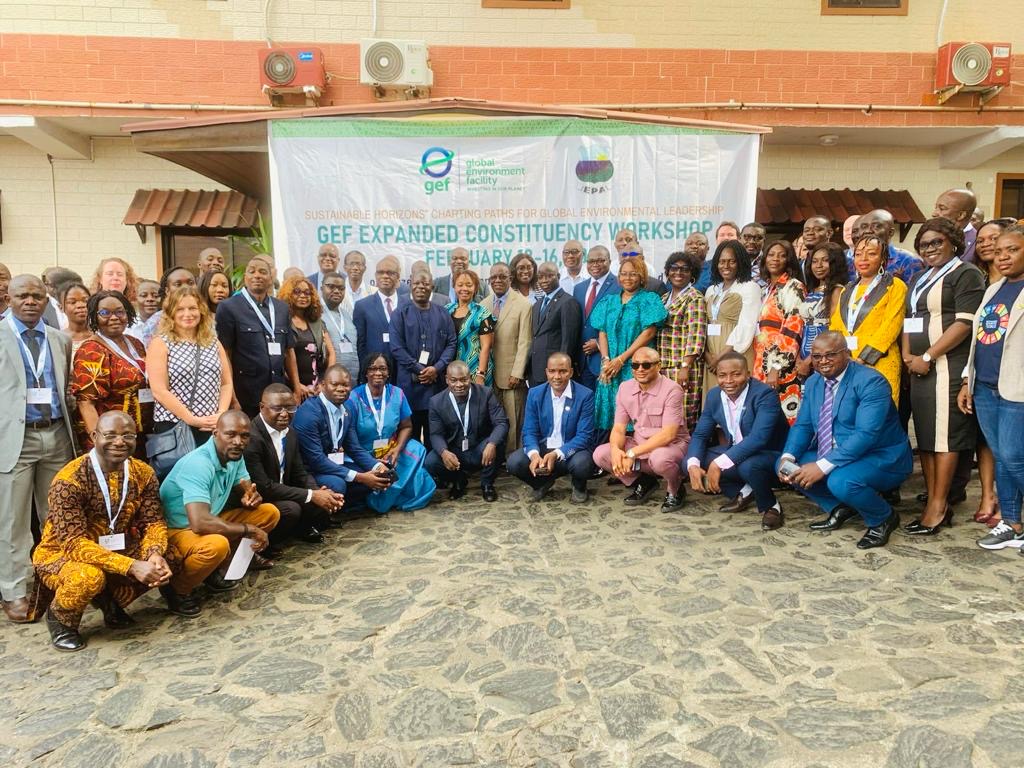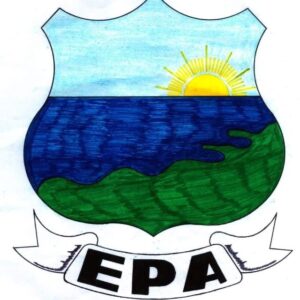EPA Commences First GEF Workshop in Liberia

By: Laymah Kollie
Monrovia-February 13,2024: The Environmental Protection Agency (EPA) of Liberia with funding from the Global Environment Facility (GEF) is currently hosting a four day Environmental Consultancy Workshop (ECW) in Liberia.
The event presents an opportunity for GEF national actors to meet with their counterparts from other countries in the region. Staffs from the GEF Secretariat, the GEF Agencies, and other GEF partners to share lessons and experiences from the development and the implementation of GEF projects and their integration within national policy frameworks.
Participants are being drawn from Benin, Cote D’Ivoire, Ghana, Liberia, Nigeria, Sierra Leone, Guinea, and Togo. The workshop brings together representatives from civil society, the GEF Secretariat, and GEF Agencies, with focal points on biodiversity, desertification, climate change, and chemicals conventions to discuss activities with global environmental benefits. The event is currently being held at Cape Hotel in Mamba Point, and will climax on 16th February.
The ECW is an annual event organized by the GEF Secretariat. It includes participation for representatives from each country, GEF Political Focal Point, GEF Operational Focal Point, three of the four national Convention Focal Points (Convention on Bio diversity (CBD), United Nations Convention to combat Desertification (UNCCD); the United Nations Framework Convention on Climate Change ( UNFCCC), and the Stockholm Convention. The ECW is also being attended by representatives from Civil Society Organizations (CSOs).
Giving an overview of the event, Prof. Wilson Tarpeh, Executive Director of EPA stated that the event is intended to encourage coordination among national officials.
According to him, the workshop will provide the space for understanding and collaboration amongst GEF members.
“The event is also intended to encourage coordination among national officials and allow better understanding among constituency members”
Also, Louis Kuupen, UNDP Resident Representative urged Stakeholders to design programs that address national and local issues. The UNDP Rep. then challenged the Government of Liberia and other member states to include problems of climate change and other national issues in the Country’s national budget.
“You have the responsibility to make sure that the program and initiatives you design for GEF really address national and local issues.
I like to use this opportunity to challenge government in addressing some of these national issues through national budget”
Furthermore, Minister of Agriculture Dr. J. Alexander Nuetah remarking at the occasion lauded the GEF for level of support offered to Liberia so far; stressing, the impact of these investments to the growth and development of the country.
“The Government of Liberia applauds GEF for its contributions to improving the natural environment, promoting and protecting biodiversity, addressing climate change, and responding to other environmental issues in Liberia and the region through the Small Grants Programme, the Least Developed Country Fund, and STAR Allocation. These investments are having an impact on vulnerable populations and communities in Liberia that are increasingly impacted by climate change and other environmental issues but more needs to be done.”
Meanwhile, madam Susan Waithaka – GEF Country Relations Officer reaffirmed GEF commitment to Liberia. “I will like to thank the Government of Liberia and we look forward to working with you”.
Global Environment Facility (GEF) was set up in 1992 as a catalyst for action on the environment. The GEF works with partners to tackle the planet’s biggest environmental issues. GEF is made up of a partnership of 18 agencies — including United Nations agencies, multilateral development banks, national entities, and international NGOs — working with 183 countries to address the world’s most challenging environmental issues. It is a financial mechanism for five major international environmental conventions: the Minamata Convention on Mercury, the Stockholm Convention on Persistent Organic Pollutants (POPs), the United Nations Convention on Biological Diversity (UNCBD), the United Nations Convention to Combat Desertification (UNCCD) and the United Nations Framework Convention on Climate Change (UNFCCC). It supports multi-stakeholder alliances to preserve threatened ecosystems on land and in the oceans, build greener cities, boost food security, and promote clean energy for a more prosperous, climate-resilient world.
The GEF Trust Fund was established to help tackle Earth’s most pressing environmental problems. GEF provides funding to developing countries and countries with economies in transition to meet the objectives of the international environmental conventions and agreements. GEF provides grants, blended financing, and policy support to help developing countries address their biggest environmental priorities and adhere to international environmental conventions. Over the past three decades, the GEF has provided more than $23 billion and mobilized $129 billion in co-financing for more than 5,000 national and regional projects.






